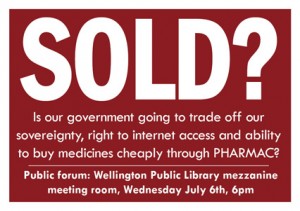– This is an original piece. I feel pretty strongly about this stuff. Comments will be welcomed.
– dennis
= = = = = = = = = = = = = = = = = = = = = = = = =
“The world has changed. I feel it in the water. I feel it in the earth. I smell it in the air. Much that once was is lost….”
~ Galadriel – Lord of the Rings
Things are changing all around us though most of us do not see it. Indeed, the world is nothing but change, and when enough change is going on around you, it is easy to miss some of it.
Administrations change, inflation rises and falls, the stock market wobbles along, prices at the market and at the gas station always seem to rise but then, to be fair, our wages seem rise as well. Sometimes, amid all that change, it’s hard to see if we’re losing or winning. After all, we’ve got businesses, families and lives to live. The daily round of just getting on with things absorbs us.
Maybe it has always gone on but it seems to me that if we want to pick out just one area where things are going wrong, we could talk about food.
Food is big money because, after all, the millions of people who comprise a nation all have to eat and most of them are not farmers.
So, food industries are born and food is brought to us through vast networks of growers, transporters, processors, storage facilities, packagers and wholesale and retail outlets.
There are people and corporations out there making vast fortunes supplying us with food. And therein lies a problem because where ever big money goes, there also goes big temptation.
Recently, here in New Zealand where I live, the top local executive of the American corporation, Coca-Cola, criticized New Zealand for being ‘anti-business‘ in an interview (http://tinyurl.com/br6dxex) that he gave on the occasion of his departure from the country. Some of us here in New Zealand, myself included, were not amused.
But the real irony of his comments came a few weeks later when a story came out in the New York Times entitled, “The Extraordinary Science of Addictive Junk Food” (http://tinyurl.com/as52ncb).
This story details the efforts undertaken by major American food companies (like Nestlé, Kraft, Nabisco, General Mills, Procter & Gamble, Coca-Cola and Mars) to create foods that we just cannot resist.
On the face of it, that doesn’t sound too bad, does it? It’s just good old Capitalism creating better products for the benefit of the American consumer?
But, it’s not all good news, I’m afraid.
These companies are corporations and they, especially the big publically held ones, are focused on only one thing and that is the maximization of profit for their shareholders.
When I say this (about corporations being solely about profits), I’m afraid that some folks might think this is some sort of a Liberal conspiracy theory on my part.
Well, it’s not. Corporations are required in the U.S. by law to be primarily focused on profit. You can read about it here: (http://tinyurl.com/3y63to)
In search of these profits, the big food companies, like those mentioned above, have established large and sophisticated laboratories setup to work out exactly how much of ‘this’ and how much of ‘that’ they should put into their products to make them as appealing to us as possible. They know that the more appealing the products are, the more they will sell and thus the more they will profit.
Sadly, these companies have found through research that to maximize their sales they generally need to add more salt, fat and sugar. And they also add preservatives and coloring agents and whatever else helps with the product’s visual appeal and its shelf life. We all know that more salt, fat and sugar are not good for us, the consumers. But, in the quest for profit, that becomes irrelevant.
I’m not going to go into a lot of detail here about how they optimize the appeal of their foods because it’s all in the article cited.
But remember, friends, that it is you and those you love that these companies are trying to manipulate into eating their junk food. And they are not doing it for your health or welfare.
Quite simply, these folks do not care about whether the foods they create for profit are making more and more of us obese or prone to diabetes (and they are making us more obese and prone to diabetes). These concerns are irrelevant to them unless they should start to get ‘bad press’ that begins to hurt their sales. But whichever way they turn, be assured it will be about profit.
So, to return to the subject of the Coca-Cola executive who criticized New Zealand for being ‘business unfriendly’ as he left? One has to wonder what exactly he was criticizing New Zealanders for? Did he judge them as ‘unfriendly’ to business because people here in New Zealand might want to have some say in what foods they eat and how those foods might affect their health?
An American, Sinclair Lewis, said the following:
“It is difficult to get a man to understand something when his salary depends on his not understanding it.”
I think this would be the reason why the American Coca-Cola executive could have trouble understanding what the New Zealanders are concerned about.
From his point-of-view, such worries could interfere with Coca-Cola’s profits and thus with his career with Coca-Cola. So he labels New Zealand ‘unfriendly’ to business. That’s cynical in my view. Does he think that New Zealanders are suppose to trade their health for Coca-Cola’s profits?
This story I’ve been sharing with you about junk food science is just one example of how corporations will pursue their profits without regard for the health of the people they sell their products to.
And this is a global problem. If one country resists having their health corrupted in the name of corporate profits, then the corporation involved can always move along to another country.
As an example, let’s reflect a bit on the tobacco industry.
These days, people take it for granted in the U.S. that nicotine is addictive and that smoking causes cancer.
But it wasn’t always so. You don’t have to be too old to remember a time not long ago in 1994, when several of the top U.S. tobacco executives went before the U.S. Congress and testified that nicotine was not addictive (http://tinyurl.com/4xofj7). But the tobacco industry’s real subterfuge with regard to defending their profits began long before that. If you follow this link (http://tinyurl.com/cl78heo), you can read about this deeper history which is referred to as ‘Operation Berkshire’.
After the congressional hearings and a lot of debate, the U.S. forced tobacco companies to lower the tar and nicotine levels in their products and to place health warnings on their packaging.
The tobacco corporations simply shifted their focus to concentrate more on other countries where there were less protections against their predatory practices. The Philippines was one such target. That poor country has long been a prime target of the tobacco industry. You can read about it here: (http://tinyurl.com/cgtb4vw)
So, let me point out yet once again, that these strategies by tobacco corporations to advance and expand their markets whenever and where ever they can, with no regard for the health of consumers, is simply standard behavior for corporate entities. Their primary motivation is the maximize the profits of their shareholders and the rest, all the human misery they cause, is irrelevant to them.
All of this begs the question, for those of you who are fortunate enough to own stocks or mutual funds, do you know what corporations your money is invested in? Do you know what they are doing? Are you making profits on investments that, if you really stopped to see what these corporations are doing, that you would find repugnant?
Not long after I read the story about junk food science in the U.S., I began to read another one about the Horsemeat Scandal in Europe. Details are here: (http://tinyurl.com/cobggsg).
You’d have to have been living in a cave recently to have not heard of how the Europeans discovered through DNA testing that all over western Europe, meat labeled as beef actually contained significant amounts of horsemeat.
It’s a sordid tale and at the bottom of it, as always, it will be found that someone somewhere (whether an individual or a corporation) found a way to make extra money by cheating and substituting the cheaper horsemeat. And they didn’t think they’d get caught or they thought that they’d make so much money that the risk would be worth it. I doubt that they thought much about whether or not folks wanted to eat horsemeat.
I know that a lot of people in the U.S. and in other countries as well (like here in New Zealand), think that we just have too much government.
But isn’t it the government that is suppose to protect us from horsemeat scandals, from aggressively marketed junk food and from cigarettes, among things?
Some folks believe that the markets should be left alone and allowed to regulate themselves. They believe that in a free market “cheaters never prosper“.
Well, I think that history has shown over and over again ad nauseam that this is a particularly naive point of view. The evidence clearly seems to be that cheaters prosper quite a bit.
Another article appeared about a week ago. This time the subject was bogus seafood in the U.S.
This was a great wake-up call for everyone in the U.S. who might have been smirking over their morning coffee and newspaper at the horsemeat scandal in Europe.
Here’s the story in all its gory detail if you want to skip right to it: (http://tinyurl.com/buwrj5b).
It turns that an organization called Oceana.Org conducted DNA testing and determined that 33% of all fish samples subjected to testing in the U.S. were mislabeled.
That 59 percent of fish sold as tuna in U.S. restaurants and grocery stores is not actually tuna.
By retail outlets they found that, seafood was mislabeled 18 percent of the time in grocery stores, 38 percent of the time in restaurants and 74 percent of the time in sushi venues.
That 84 percent of fish samples described as ‘white tuna’ were actually Escolar. Escolar is a type of Snake Mackerel that has rich, buttery flesh, but unpleasant side effects.
What side-effects, you ask?
Oh, just ‘prolonged, oily anal leakage’ for some of the people who eat it; nothing much.
And it only takes about 6 ounces of Escolar to cause this effect.
So, let’s go back to the ‘less government’ idea again.
Who exactly is it that we think is going to test for stuff like this? Who is it that will ensure that when someone sells us something they call ‘Tuna’, that it is what they say it is?
While you are thinking about that, consider that 90% of all seafood consumed in the U.S. is imported. And less than 1% of that is tested.
Consider as well that human nature seems to be such that there’s always going to be someone who, when given the opportunity to make significantly more money, is going to ‘work’ the system to do so if they can. We can count on it.
So, shouldn’t it be obvious that someone is going to substitute cheaper varieties of fish for the more expensive ones unless they are prevented from doing so?
We’d all like to think that folks won’t cheat us, but the blindingly obvious fact is, many of them will.
In this case, it was an organization called Oceana.org (http://tinyurl.com/bxawv7x) that discovered the substitutions; not the U.S. government.
That was lucky for the American public. But in my opinion, people should not have to rely on luck to uncover this stuff.
So, when you hear the siren song of ‘less government’ you should think about all of this.
So, why doesn’t the U.S. government protect Americans better on these sorts of issues now? Well, sometimes they do. But as the opening quote of the article suggests, “The world has changed”. And it is continuing to change.
Part of the reason is because increasingly a lot of Americans believe in the idea of “less government”. And, because they vote, their beliefs are reflected how the government runs and what it does.
Another reason is because it is in the best interest of many big corporations and high-net-worth individuals to prevent the government from making laws that interfere with their profits. Thus these folks unleash armies of lobbyists and bags of money in their efforts to influence and control law makers.
And yet another reason is because of what’s called “The Revolving Door”. The Revolving Door is the practice whereby a man who yesterday worked as an executive at a big coal mining company will somehow today be appointed to a high office in government to oversee the coal industry.
You can read about this practice here: (http://tinyurl.com/yzhndor)
The Revolving Door practice has been going on for a long time and it truly is an example of letting the fox into the chicken coop. But, somehow in the U.S. (and in other countries) this has become an accepted way of doing things. And a seriously dysfunctional way, in my opinion.
Regarding “less government”, I don’t like the over-the-top Liberal ‘nanny-state’ anymore than the next individual. But people do, in fact, need government to regulate business so we can all maintain our quality of life. What we don’t need are governments that exist primarily to protect the rights of the corporations.
But, in my view, the sad truth is that these days corporations are slowly and inexorably increasing their control over our governments.
Witness the “Citizens United” ruling by the U.S. Supreme Court that says “corporations are people” (http://tinyurl.com/b4czkdp). As a result of this ruling, corporations cannot now be limited in how much money they can donate to political campaigns. Does that stink or what?
What do I want from my government in the U.S. or here in New Zealand (or anywhere else for that matter)?
I’d like to know that my government inspects my food and ensures that if I buy something called Tuna, that that’s what I’m getting.
I’d like a government that exerts itself to keep its populace well informed as to why the junk food being cooked up by the large corporations to maximize their profits may not be the best thing for people to eat.
I’d live a government staffed by people who haven’t just, for example, walked out the door of a coal mining company and are now sitting at a desk in the government office responsible for regulating the same coal industry.
I’d like a government that realizes that corporations bent solely on profit may not always make the best decisions for a people or for a country. A government that will protect us against their worst excesses.
These are common sense ideas to me and most of us, I believe, would like think that this is how things are done.
But, I have to tell you, they are in general not being done this way and every day the influence of the corporations and big money over our governments grows.
Would you believe me if I said that corporations don’t even care about the health of nations?
Many people think that the economic problems in the U.S. began long before the melt-down of 2008.
They think that it actually began when many of the big U.S. based multi-national corporations realized that they could increase their profits by moving their U.S. based manufacturing operations overseas. The corporate logic was that it will cost less to make it over there and we can therefore make more profit when we sell it.
That was good thinking for those corporations but it was bad for America. The net result? America has beggared itself.
Just ask yourself, how can a country remain a net creator of wealth when it isn’t making anything to sell?
And if it is not generating more than it is spending, how it can ever expect to pay off an ever increasing national debt?
So, off shoring was good for the corporations and absolutely ruinous for the American economy. But the corporations didn’t care. It was, as always, all about their profits.
So, the American national debt rises every year and the battles in Washington, D.C. about what to do about the debt get more and more rancorous all the time. Everyone’s fallen into blaming everyone else because there isn’t any good solution to the mess the corporations have put us into.
The Liberals blame the Conservatives and the Conservatives blame the Liberals and the big corporate interests who are getting richer and richer just keep pouring money and lobbyists into Washington, D.C. every year to make sure that things don’t change in any way that will affect their profits.
But it gets even worse.
The main overseas beneficiary of sending American manufacturing offshore has been China.
China is the largest Communist country in the world. China used to be dirt poor and now it is overflowing in American dollars.
America, helped by the mercenary multi-national corporations, has sent China all the money it needs to convert the Chinese third rate, third-world military into something with first world capabilities so that now it is a force to be reckoned with.
The Chinese may look capitalistic but their government is Communist to the core and their ambition to remake us all in their image has never faded.
And, in the mean time, America’s having trouble paying its bills.
Corporations, unchecked, are a bad idea. But they are, of course, just doing what comes natural to them when they seek profits above all else.
The truth is that they’re a lot like a junk-yard dog; it’s been trained to bite people and that’s what it does. But you wouldn’t let a junk-yard dog run loose on the street, unchained, would you?
To be fair, corporations are good in many ways. They drive innovation, they provide jobs, and they help the economy grow and prosper. But they are too mono-maniacal in their focus on profit to be allowed to ‘run free’. They, quite naturally, don’t care about the health of people or even the health of nations.
It’s my strong opinion that in every country, the number one priority of government should be to maximize the quality of life for the people of that nation. The freedom of corporations should always be of a secondary priority.
Corporations should be allowed freedom of action only so long as their actions do not impinge on the quality of life or the freedom of the people. Corporations will, of course, make less profits this way. But this world should not primarily be about their profits but, rather, about the quality of life for all of us.
Until we make such a decision about our priorities, we will continue to be abused by those who care only about their profits. Horsemeat, bogus fish, revolving doors, and foods designed to addict us and kill us. How much evidence do we need?





